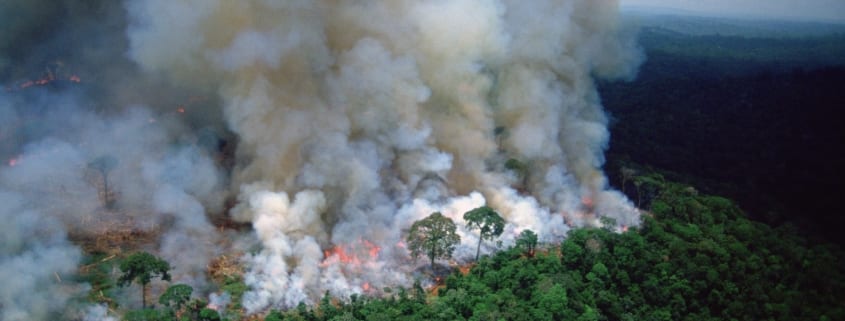Statement on Wildfires, Loss of Biodiversity & the Climate Crisis
The Amazon, the world’s largest rainforest, is ablaze. Tens of thousands of fires are raging across Brazil at a record rate, before the dry season even begins. The scale and severity of the fires that are burning in Brazil is frightening and has justifiably generated outrage and calls to action throughout the world. Indeed, the G7 Summit this past weekend included an emergency discussion of the fires engulfing the Amazon, with both statements and commitments of support.
But Brazil is only one part of the current wildfire crisis. Key rainforest habitat around the globe is being lost to fires that are set as part of agricultural clearings. Fueled by an ever-warming and increasingly unpredictable climate, these fires rage to such an extent that they threaten wildlife and indigenous communities, and blanket the skies over major population centers hundreds of miles away.
Just next to Brazil, over 2.5 million acres of the unique Chiquitano forest in the Bolivian Amazon has been burned for cattle grazing, putting hundreds of species at risk. The Chiquitano, known as the largest intact dry rainforest in the world with the greatest population of indigenous people in eastern Bolivia, is home to iconic wildlife found nowhere else on Earth.
More fires began in Africa last week than in the Amazon, per NASA satellite data. Thursday and Friday alone saw nearly 7,000 forest fires started in Angola and over 3,000 in the Democratic Republic of Congo, threatening both biodiversity and the livelihoods of people on the ground who are already in tenuous sociopolitical circumstances.
Fires across Indonesia early this month caused six provinces to declare a state of emergency. The country’s forests house some of the most unique biodiversity on the planet, but this ecological tragedy imperils both local and global biodiversity. Extreme amounts of smoke and dust from the wildfires have now created a haze throughout neighboring Malaysia and Singapore.
In commenting on the devastation in Brazil, the UN Secretary-General António Guterres stated that “in the midst of the global climate crisis, we cannot afford more damage to a major source of oxygen and biodiversity.” This statement is applicable to tropical forests across continents. While rainforests cover just 2.5% of the Earth’s surface, they hold over 50% of the world’s biodiversity, and losing them has immeasurable global impacts.
Rainforest Trust was founded on the premise that all rainforests, especially those replete with endangered species and endemic biodiversity, should be priority conservation sites, and that protection provides the best means of preventing destruction. For the past 30 years, we have stayed true to our core mission of working with local partners to establish protected areas for endangered species and key biodiversity. Rainforest Trust knows these forests, and the indigenous and local communities that rely on them. We know the science and understand the sobering reality that the world is rapidly approaching an irreversible tipping point. Forests must be protected — for biodiversity, for nature-dependent ecosystem services like clean water and healthy soils, and for our climate. This focus, our focus, never wavers.
Header image: Amazon rainforest burning. Photo by Rainforest Trust.




